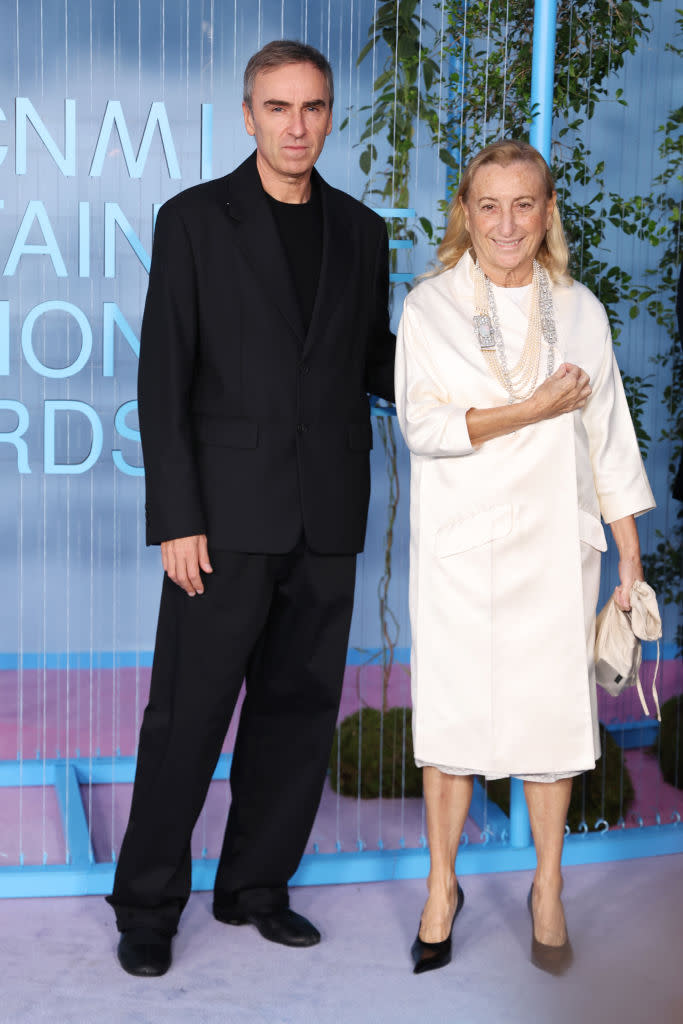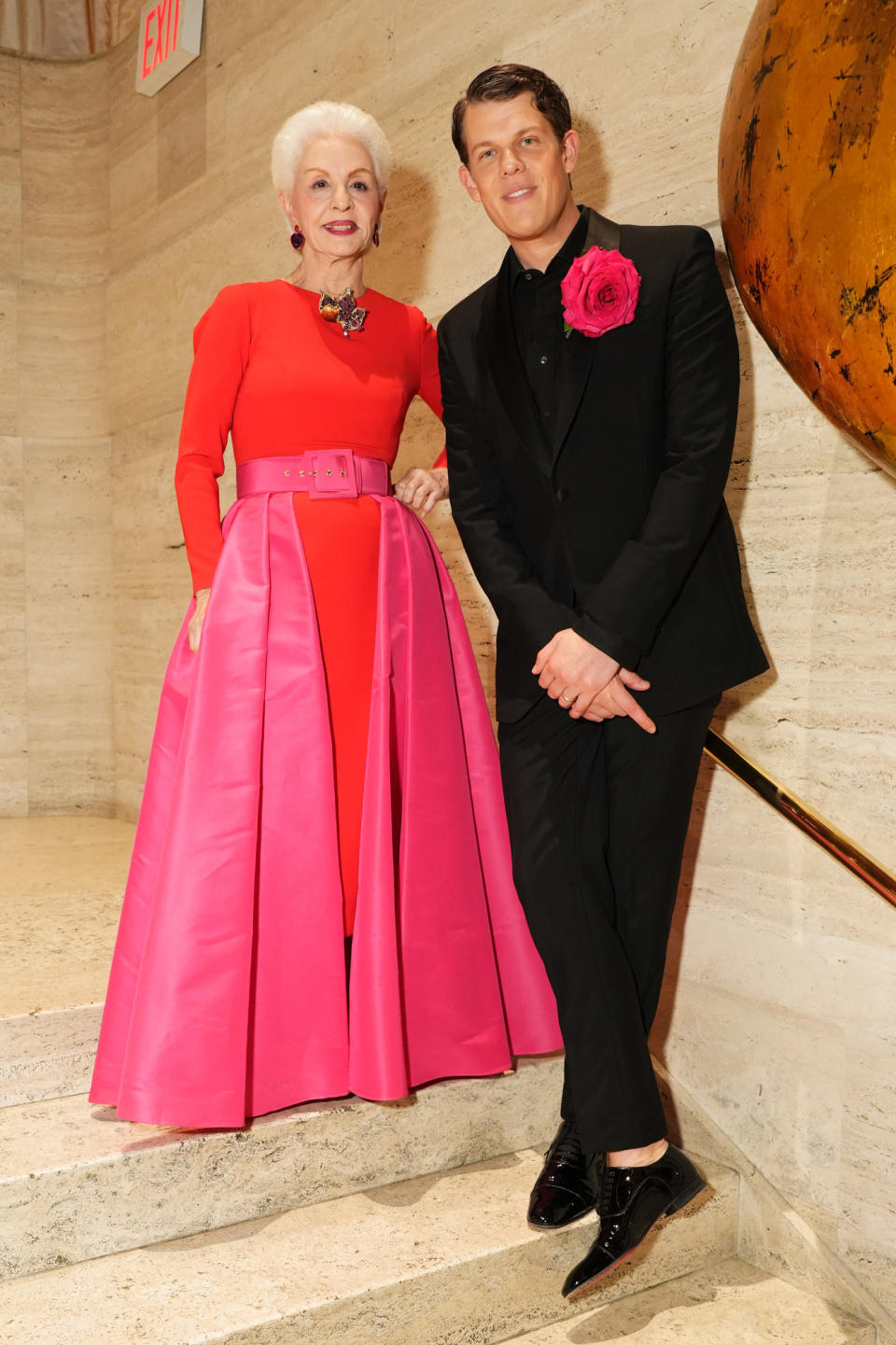Are Planned Creative Successions the New Norm?

Is the fashion industry finally coming to grips with planned, unhurried succession strategies for its famous creative leaders?
WWD broke the news on Tuesday that Dries Van Noten is stepping down in June after nearly four decades in fashion — and a glorious, slow-building fashion career.
More from WWD
His last show in his current role will be his men’s show for the spring 2025 season, scheduled for Paris Fashion Week, while his studio has been conscripted to design the next women’s show this fall.
“In due time, we will announce the designer who will continue the story,” Van Noten said in a statement prompted by WWD’s findings that a search for his successor was underway. “I have been preparing for this moment for a while, and I feel it’s time to leave room for a new generation of talents to bring their vision to the brand.”
Separately, WWD has learned that top management at Michael Kors also have quietly put the gears in motion as it plans for an eventual exit of its founding designer.
Sources said talent scouts recently made overtures to designers, and described a transitional period during which they would work in tandem with Kors, 64. The timelines for any eventual creative handover at the American brand could not immediately be learned.
Contacted by WWD, officials at Michael Kors had no comment.

Last August, Kors parent Capri Holdings revealed it was to be acquired by Tapestry Inc. in a roughly $8.5 billion deal that shook up the world of accessible luxury fashion and accessories. The transaction, once completed, will bring together Tapestry’s Coach, Kate Spade and Stuart Weitzman brands with Capri’s Michael Kors, Versace and Jimmy Choo to create a $12 billion giant.
Many are watching to see if Tapestry eventually turns around and sells off Versace and Jimmy Choo to help pay for the transaction.
One of the pillars of the New York fashion scene, Kors first launched his women’s collection in 1981, weathered bankruptcy in the early 1990s and took his namesake company public in 2011, which evolved into fashion group Capri following the acquisitions of Jimmy Choo and Versace.
Sources familiar with the unfolding succession scenarios at both Van Noten and Kors cite the 2020 appointment of Raf Simons as co-creative director of Prada as a linchpin moment that reverberated across the industry.

“It opened the mind to other ways of approaching succession,” one source said.
Simons continues to work in partnership with Miuccia Prada with equal responsibilities for creative input and decision making. At the time of the announcement, the Italian designer brushed off suggestions she was eyeing retirement.
Back in 1997, Emanuel Ungaro famously hired Giambattista Valli to work alongside him, and the young, Rome-born designer was ultimately named creative director and took the reins from the founder in 2001, but the collaboration only lasted two years.
Carolina Herrera, which like Dries Van Noten is controlled by Spain’s Puig group, pursued a similar strategy, with the founder bringing in designer Wes Gordon as her wingman for a short period and then fully handing over the design reins in 2018.

“The relationship we have with founders, even after their retirement, has long been a defining factor for Puig’s success, and we look forward to continuing our personal and professional friendship as Dries remains involved in the brand to work on certain projects,” Marc Puig, chairman and chief executive officer of Puig, said in a statement Tuesday.
“We respect Dries’ wish to step aside, after an exceptional 38-year career in fashion,” he continued. “It is a distinct honor for Puig to now be entrusted with carrying his legacy into the future, and a unique responsibility we will treasure as a new and exciting chapter opens for both Dries and the brand.”
Prominent founder-led fashion houses that have yet to disclose any plans for an eventual creative succession include Giorgio Armani and Ralph Lauren.
It is understood Van Noten — synonymous with ravishing colors, prints and dignified dressing tinged with exotic details — forged a rough succession roadmap when he sold a majority stake in his Antwerp-based fashion house to Puig in 2018.
At the time of the transaction, Puig said Van Noten would remain “over the long-term a significant minority shareholder” and would “continue as chief creative officer and chairman of the board.”
While particulars were not disclosed at the time, the designer had committed to stay for a minimum of five years, sources told WWD.
It is understood an initial list of potential successors to Van Noten includes promising number-two designers, which have been implicated in many recent designer appointments, including at Tod’s, Bally, Alexander McQueen and Moschino.
Conversations with designers in Europe have already taken place, sources said. However, the timeline and other particulars about the search could not immediately be learned.
The next Dries Van Noten women’s collection “will be made by my studio team with whom I have been working very closely during all these years. I have full confidence that they will do a great job,” Van Noten said in his statement. “In due time, we will announce the designer who will continue the story.
“However, I will stay involved in the house that I treasure so much,” he added.
Van Noten is 65 years old, and has many outside interests beyond fashion, including a passion for gardening.
“As a young guy from Antwerp, my dream was to have a voice in fashion. Through a journey that brought me to London, Paris and beyond, and with the help of countless supportive people, that dream came true,” he said. “Now I want to shift my focus to all the things I never had the time for. I’m sad, but at the same time happy.”
A beloved figure on the fashion and retail scene, Van Noten has won numerous awards, including the WWD Honor for Designer of the Year in 2023, and the CFDA’s International Designer of the Year in 2008. He has also been decorated by Fashion Group International, the Couture Council of the Museum at FIT and the Flemish Royal Academy of Belgium.
A 2014 exhibition at Les Arts Décoratifs in Paris probed how pop culture, fine objects and paintings shaped Van Noten’s aesthetic, also detailing his career-long collaboration with embroiderers in India.
While Van Noten is involved in many aspects of the business beyond design, Puig has in recent years fortified management ranks at the company, tapping Axel Keller, who had been CEO of Jil Sander, as president.
Keller had a long career as commercial director for top designer brands in France, most notably Balenciaga, where he was commercial director for 14 years, and at Maison Margiela, where he held that role for 13 years.
One of the original Antwerp Six, and arguably the one who has had the most enduring impact on womenswear and menswear, Van Noten comes from a family of tailors and is a graduate of Antwerp’s Royal Academy of Fine Arts. He launched his label with menswear in 1986, and established his flagship store, known as Het Modepaleis and located on the site of a historic department store, in his hometown in 1989.
Like many Belgian designers, Van Noten has resisted most of the common paths to growth, forgoing pre-collections, advertising, celebrity dressing and a handbag push.
But since linking up with Puig, he has opened more freestanding boutiques, launched a range of fragrances and lipsticks, and combined his fashion and beauty worlds in a newfangled boutique concept in Paris mingling accessories and beauty products.
In disclosing 2023 financial results, Puig flagged that Van Noten ranks as its fastest-growing niche brand.
The Spanish group’s fashion portfolio also includes Carolina Herrera, Jean Paul Gaultier, Nina Ricci and Rabanne.
Gaultier retired from the runway in 2020 and continues to select guest couturiers for his Paris-based house.
“I thank everybody at Puig — Marc Puig, Manuel Puig, Jose Manuel Albesa and Ana Trias — for continuing to believe in us, and for helping us to build an even stronger company,” Van Noten said. “Also, my thanks to the fabric and accessories suppliers, ateliers and manufacturers, embroiderers in India and everybody who helped us realize so many beautiful ideas.
“I feel such gratitude to all those at DVN. During these years, 38 to be precise, you gave me the chance and the energy to produce four collections a year, to stage shows, to open stores and make DVN the success it is today,” he continued. “Since Puig became part of our business, we could continue to grow the way we wanted to,” Van Noten said, citing the addition of beauty and perfume lines, the expansion of the accessories, the addition of e-commerce and new and innovative stores.
“The brand is now blooming. Like in a garden, you decide what to plant, and at some point, it continues to flourish,” he said. “Seeing our clothes out in the world, knowing they have a place in your life, has fulfilled me beyond words.
“I am sure of this: the DVN future remains bright,” he concluded.
— With contributions from Samantha Conti (London)
Best of WWD


